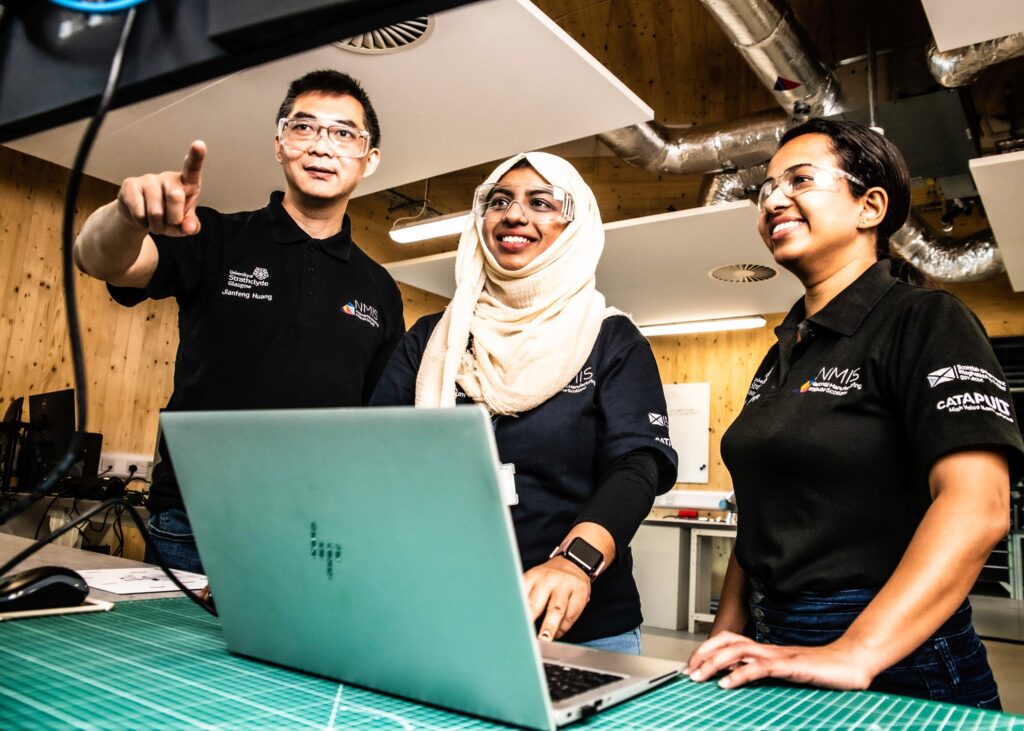MANUFACTURING businesses across Glasgow are set to benefit from £14m of funding for projects to boost sustainability and productivity
With £5.4m in funding from the Innovation Accelerator and up to an additional £8.6m contributed by partners, the aim is to help manufacturers futureproof their businesses.
National Manufacturing Institute Scotland (NMIS), which is operated by the University of Strathclyde have developed three R&D and projects aimed at developing Glasgow’s manufacturing industry
Remake Glasgow, D3M_Colab and Stratellite will see smaller manufacturing firms work industry names, including Boeing British Airways maintenance and SSE Renewables.

Chris Courtney, CEO of NMIS, said: “These projects represent a massive investment in the Glasgow city region’s manufacturing industry, which has an enduring legacy as one of the industrial powerhouses of Europe.
“With support from the team at NMIS and our project partners, local manufacturing businesses of all sizes can capitalise on the global demand for greener, innovative technology solutions.
“We’re excited to use these projects to strengthen local links between R&D and industry to deliver tangible benefits for everyone.”
The first project, ReMake Glasgow, will see the creation of a first-of-its-kind national Remake hub within the flagship NMIS building next to Glasgow Airport.
The hub will advance sustainable manufacturing by supporting reusing, refurbishing and repairing parts and products– saving up to 99% carbon emissions.
The consortium includes Boeing, Howden – a Chart Industries Company, BA Maintenance Glasgow, SSE Renewables, ATS Global and Renewable Parts.
Data Driven Design and Manufacturing Colab (D3M_Colab) will train 300 local engineers in data science to help them overcome manufacturing problems and improve sustainability within their organisations.
Partners include Babcock, with participants from its Rosyth facility and HMNB Clyde operations taking part in the scheme following two pilot cohorts.
Stratellite, led by the NMIS with Thales as the industry partner, taps into Scotland’s growing satellite manufacturing sector and will see the development of an easy-to-reconfigure exploratory production line.
The technology will help manufacturers to make new products for new markets without upfront investment in expensive production facilities.
Professor Sir Jim McDonald, vice-chancellor and principal of the University of Strathclyde, and chair of the NMIS Board, said: “At Strathclyde we are committed to developing innovative and transformative technologies in collaboration with our industry partners.
“This a great example of the benefits that come from strategic collaboration across industry, business, academia and the public sector.”
Led by Innovate UK on behalf of UK Research and Innovation, the pilot programme is investing £100m in R&D projects to accelerate the growth of Glasgow, Greater Manchester and the West Midlands.
Dean Cook, Innovate UK’s executive director for place and levelling up, said: “We are delighted with how these three Innovation Accelerator Projects are making a significant contribution to the economy of Glasgow.
“They are helping businesses develop and adopt cutting edge technologies and attract the extensive private sector investment, vital for the grow of its advanced manufacturing sector.
“They are strong examples of how this locally led approach is bringing together the whole ecosystem, leveraging the research expertise.
“The Innovation Accelerator Programme is delivering on its commitment to drive the benefits of innovation across the City Region through a locally led strategy, with the support of UKRI and Government.”